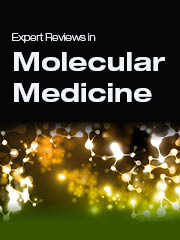No CrossRef data available.
Article contents
Molecular genetics and the assessment of human cancers
Published online by Cambridge University Press: 11 February 2004
Abstract
The past 20 years have seen rapid advances in the understanding of the biology of human cancers, and a large body of evidence now supports the idea that accumulated genetic changes underlie the development of neoplasia. In this article, we have reviewed the current research into the genetic bases of cancer and discussed the potential clinical applications of recent advances, with particular reference to the possibility of using molecular genetic tests for pre-symptomatic screening, clinical diagnosis and clinical staging. The possibility that the genetic profile of a tumour, its ‘molecular fingerprint’, will improve the ability of oncologists to predict tumour behaviour and thus help to determine optimum treatment has also been considered. Although the potential for the application of molecular genetic technologies is enormous, these technologies have yet to be subjected to rigorous evaluation in a clinical setting, and much work needs to be done before they are adopted for use in routine clinical care.
Keywords
- Type
- Review Article
- Information
- Copyright
- © Cambridge University Press 1999




